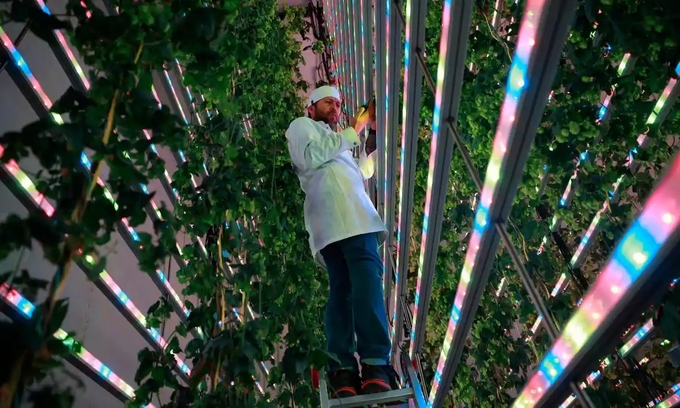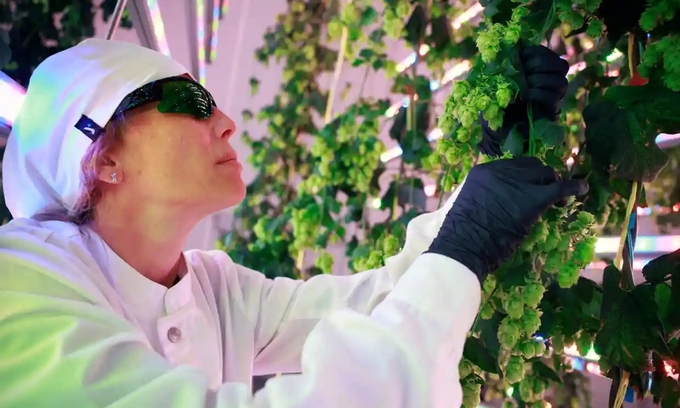Source: nongnghiep.vn

Javier Ramiro, co-scientist of indoor hop startup Ekonoke, controls the growing process in the city of Alcobendas, Spain. Image: Juan Medina/Reuters.
Featuring bright green flowers, hops have been used for hundreds of years to flavor beer. However, this tree species is becoming a victim of negative climate changes. Increasingly hotter summers and unpredictable weather are reducing the production and quality of hops in Spain.
Ekonoke, a Spanish start-up that specializes in houseplant farming, thinks it has found a viable and sustainable solution. Hops, which are being grown hydroponically in the city of Alcobendas and the nearby city of San Sebastián de los Reyes, are not only as productive as outdoor hops – about 1kg per plant, but also rich in concentrates. oils and alpha acids, giving the beer its distinctive flavor and aroma.
What’s more, Ekonoke’s method uses 15 times less water and 15 times smaller overall carbon footprint than traditional outdoor growing methods. Hops are grown indoors under strictly controlled conditions, so no pesticides are needed.

Ana Saez, chief executive officer of Ekonoke, at the facility in Alcobendas, Spain. Image: Juan Medina/Reuters.
As part of a program initiated by AB InBev, the world’s largest brewer, Ekonoke’s hydroponic hops project has attracted the attention of beer companies in Spain in particular and globally. Generally speaking.
The €4.2 million received in investment rounds last year (mostly from Spanish beer brand Estrella Galicia) helped Ekonoke build a 1,200-square-foot pilot plant in the northwest region of Spain. Nha, expected to be completed by the end of June. The company aims to harvest 5,000kg of hops per year at this factory.
Ines Sagrario, co-founder and chief executive officer of Ekonoke, expressed delight at the brewing industry’s interest and support. “What breweries are most interested in is having a secure supply so they don’t have to worry about watching the market move or think about catching the bottom of hop stocks.”
For Ekonoke, the technology of hydroponic hop cultivation has a much greater significance, especially in the field of land use and sustainable development. The startup’s farming method produces 40 times higher yields of hops per hectare than outdoor farming, thereby freeing up large amounts of land for cultivation, contributing to soil regeneration or reforestation. .
